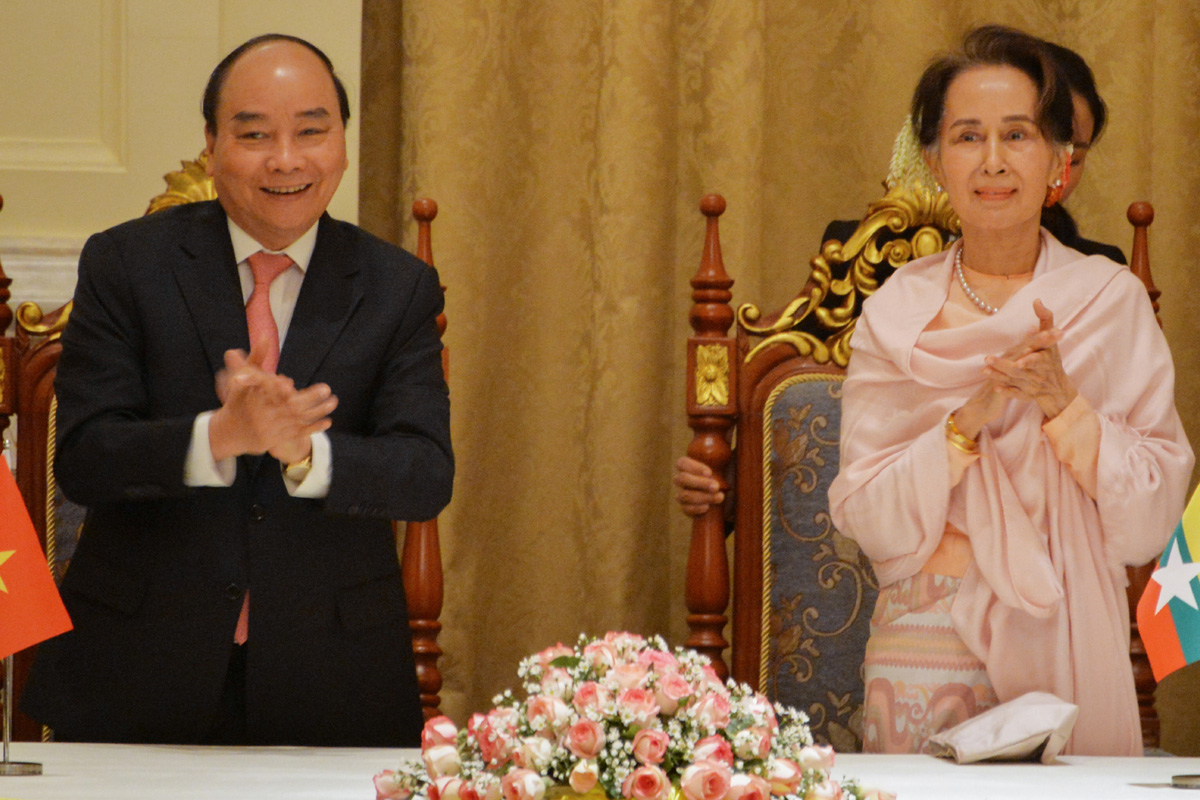International Court of Justice hears South Africa genocide case against Israel
At the ICJ, South Africa's Justice Minister Ronald Lamola said that Palestinians have suffered at the hands of Israel since 1948.
Two Reuters journalists, who exposed the killings, served more than 500 days in prison.

Myanmar's State Counselor Aung San Suu Kyi (R) and Vietnam's Prime Minister Nguyen Xuan Phuc (L) attend a signing ceremony at the Presidential Palace in Naypyidaw on December 17, 2019. (Thet Aung / AFP)
Humanity is on trial. And yet Aung San Suu Kyi’s deposition at the International Court of Justice at The Hague on the persecution and worse of the Rohingya Muslims has turned out to be a damp squib, indeed a feeble submission on an ugly truth. After a bout of prolonged silence, her singular brief was apparently to defend the regime and the junta. Once regarded as the champion of democracy and the fight against oppression, she has now lost her moral credibility after kowtowing to the junta since the election in November 2015.
And yet, her strained defence before ICJ of the perpetrators of repression ought not to overshadow the core issue ~ the repression per se, of a kind that has been rated by the UN as the worst humanitarian crisis since World War II. That crisis relates to the 700,000 Rohingya Muslims who were forced to flee to Bangladesh in 2016. UN investigators believe that 10,000 may have died in the crackdown, and the 600,000 now languishing in squalor have been denied basic rights.
Advertisement
As Senior Counsellor short of President, Suu Kyi’s presentation at the fountain-head of justice has skirted the central issue of man’s inhumanity to man. Not to put too fine a point on it, her deposition at Peace Palace in The Hague ~ the venue of the hearing ~ was a non-event, much as she played to the military gallery in Naypidaw. She has drawn a fine distinction between the treatment of Rohingyas and genocide.
Advertisement
The narrative in Myanmar lends no scope for semantic quibbling and it is hard not to wonder whether the junta, which still calls the shots from behind the facade, had scripted her speech. Of course, she has conceded that “it cannot be ruled out that disproportionate force was used by members of the defence services in some cases in disregard of international humanitarian law, or that they did not distinguish clearly enough between fighters and civilians”.
But this did not, she argued, amount to genocide. Nor for that matter did she use the term “Rohingya” even once. Not many will buy her argument that the accusations against Myanmar form an “incomplete and factually misleading account”. In point of fact, the evidence points to a pogrom against a people who have suffered decades of discrimination. She claimed that the authorities had held troops to account; yet even when soldiers were jailed for the murder of 10 Muslim men in the village of Inn Din, they were released after less than a year.
Two Reuters journalists, who exposed the killings, served more than 500 days in prison. Her personal representation of Myanmar has dispelled the hope that she is a reluctant leader of a civilian government in a country where the military remains omnipotent. Even at The Hague, she was seemingly anxious not to rock the junta’s applecart before the elections in 2020. It was more than just a coincidence that while she was defending her country in the UN’s highest court, 23 Rohingya children were made to appear in a Myanmar court for trying to flee the country. The International Court of Justice must know the truth of the matter. It didn’t last week.
Advertisement